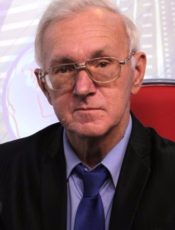The visit of Sheikh Tamim bin Hamad Al Thani, Emir of Qatar to Moscow from Jan. 17-19, and his meeting with Vladimir Putin could not have gone unnoticed. But there is more to it than just the bilateral relations between the two countries. The talks between the two leaders focused on the prospects for a political settlement of the Syrian crisis, as well as the status of the oil and gas market. Both parties reiterated their intention to redouble their efforts to resolve the problems there.
The Qatari Emir’s visit occurred shortly before the next round of multilateral talks on Syria, scheduled for late January. Spokesmen for the leaders of the Syrian Arab Republic and a delegation from the Syrian opposition are to take part in the new phase of the negotiations. However, there is still no consensus within the ranks of the opposition itself about which opposition groups will be represented at the talks. Disagreements also remain between the countries involved in the negotiation process: Russia, Iran, Iraq, and Syria on one hand, vs. Saudi Arabia, Qatar, Turkey, and the Western nations on the other. Above all, there is no agreement about which Syrian opposition groups are terrorists and which can be considered the “moderate opposition”. As for Qatar, this emirate that provides substantial financial support for the most radical Islamist forces plays a key role in the protracted crisis in Syria. That is why the Emir of Qatar’s January talks with the Russian president could have a significant impact on how the situation in Syria unfolds.
The emirate of Qatar is not large (measuring only 11,500 sq. kilometers, with a population of about two million), but that state’s influence is not limited by its physical size or number of inhabitants. With substantial hydrocarbon reserves (the world’s third largest gas reserves after Russia and Iran and about 3.7 billion barrels of proven oil reserves) and formidable financial resources, coupled with the Emir’s extraordinary political energy, Qatar is a powerful force not only in the Middle East, but also in Europe.
Qatar has become a favored partner of France, both economically and politically. Qatar has invested tens of billions of euros in French industry’s most advanced, innovative ventures. Ministers, well-known public and political figures in France, business leaders, and journalists are regularly invited to attend various conferences in Qatar, where deals are struck and business and personal ties are forged and strengthened. And it must be said that this is not limited to just French establishment circles. The capital of Qatar, Doha, is located on the Persian Gulf and has become a business center and a world-class destination for upscale leisure, where representatives of influential political and business circles are happy to congregate.
Qatar has only recently begun to focus its investments into social projects in France, specifically in developing the suburbs of major cities, which are home to the majority of the French Arab-Muslim diaspora. Specifically, Qatar’s leaders intend to finance the construction of the House of Qatar in Paris and the An-Noor Islamic cultural center in Mulhouse, where there are also plans to build an imposing mosque.
It should be noted that certainly not everyone in France is overjoyed about this. A faction of the French political establishment has expressed concern about Qatar’s true intentions and goals of its capital investments in infrastructure and Muslim places of worship in the French suburbs, suggesting that the French government is at risk of losing its sovereignty in areas where serious problems already exist. Speaking for the Front National party, its leader, Marine Le Pen, has described this situation as the “Qatarization” of France. Marine Le Pen, who has already announced her intention to run for the French presidency in the April 2017 election, believes that Qatar’s financial and economic support of French regions with a predominantly Muslim population is a plan to promote Islamic fundamentalism in the heart of France.
As for the Russian-Qatari relations, in recent years their path has not always been a smooth one. An outrageous incident occurred at the airport in the Qatari capital, for example, when the diplomatic immunity of the Russian ambassador was violated. Qatar is a member of the Gulf Cooperation Council (GCC), where the Kingdom of Saudi Arabia holds the reins, and like all members of the GCC, Qatar supported NATO’s intervention in Libya and, like Saudi Arabia, continues to support armed Islamist groups in Syria and the bombing of Yemen by the Royal Saudi Air Force.
On the global oil and gas market Qatar follows the lead of the policy of Saudi Arabia, which is a strategic ally of the United States. This is not an area in which we should expect to see any changes. But at the same time the interests of Riyadh and Doha are not identical. Lured by significant financial opportunities, Qatar is pursuing its own interests in the Middle East and in other parts of the world.









